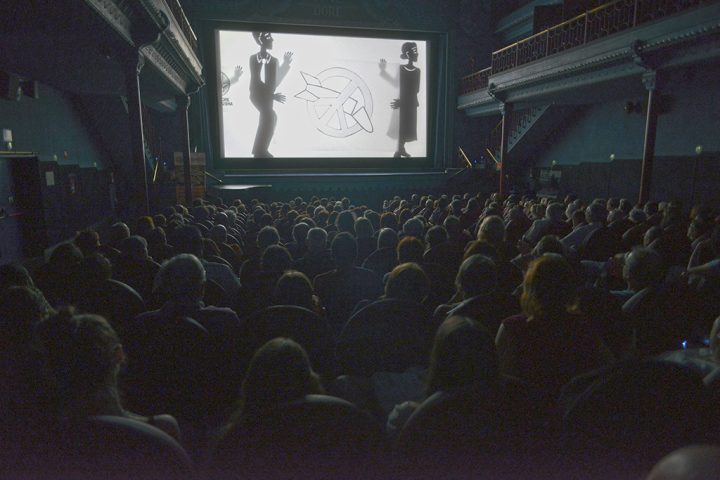In a final event to mark Pressenza’s 10th birthday.
Photos Ariel Brocchieri
On Monday 23 September, as advertised, the documentary “The Beginning of the End of Nuclear Weapons” premiered in Spain, in Madrid, at the historic Cine Doré, and was attended by more than 230 people. The event was organized by Pressenza, producer of the film, and ICAN of which our agency is a partner organisation.
The act was framed as the closing celebrations for Pressenza’s tenth birthday and the opportunity was taken to talk about the origins of our project of journalism for peace and nonviolence, carried out by volunteers who for the most part are activists, something which easily explains why we also produce documentaries such as The Beginning of the End of Nuclear Weapons. A documentary that aims to support efforts around the world for signature and ratification of the Treaty on the Prohibition of Nuclear Weapons by alerting the population to the danger in which they live and building a citizen’s movement that leads to their elimination.
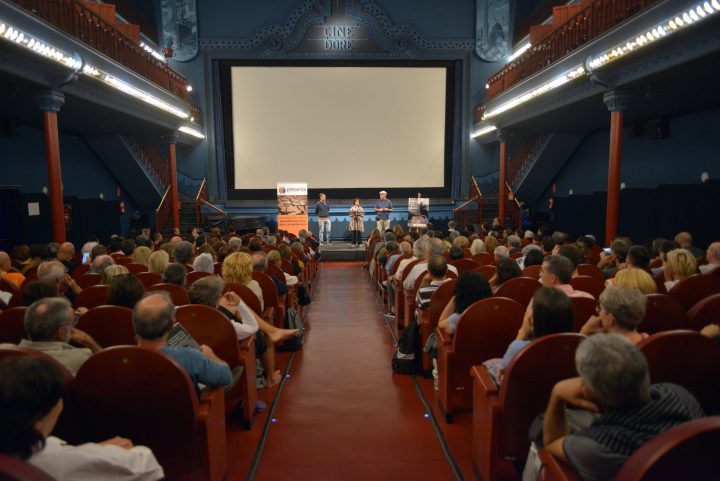
In this first part of the presentation, the director of the film Álvaro Orús, the producer Tony Robinson, who left London for a few hours to accompany the premiere, and David Bazo, who produced the soundtrack, were given the floor.
Alvaro Orús emphasized the nuclear danger in which we live without knowing it and the need to raise public awareness, while highlighting the interest in generating hope with the film, while Tony Robinson highlighted the value and effectiveness of nonviolent actions for conflict resolution. Finally, David Bazo drew attention to the moments in which he opted for silence instead of music so that the spectator could pay full attention to the visual images as they “speak for themselves”. Both Orús and Robinson invited all the organisations and individuals present in the room to use the documentary to help spread the urgent need for nuclear disarmament, for which it was made.
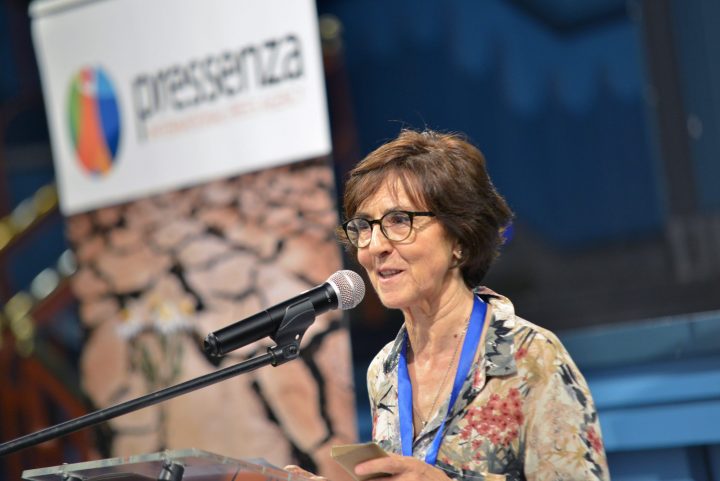
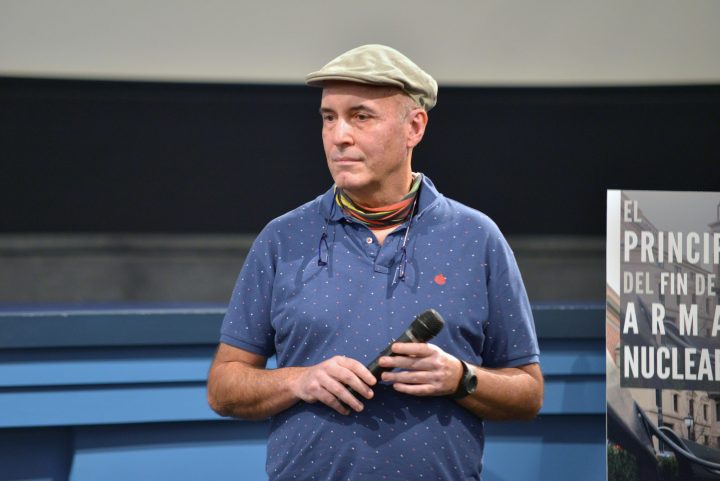
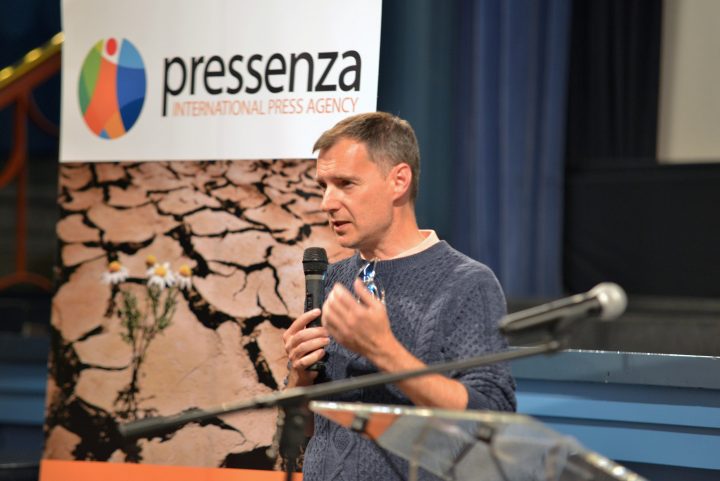
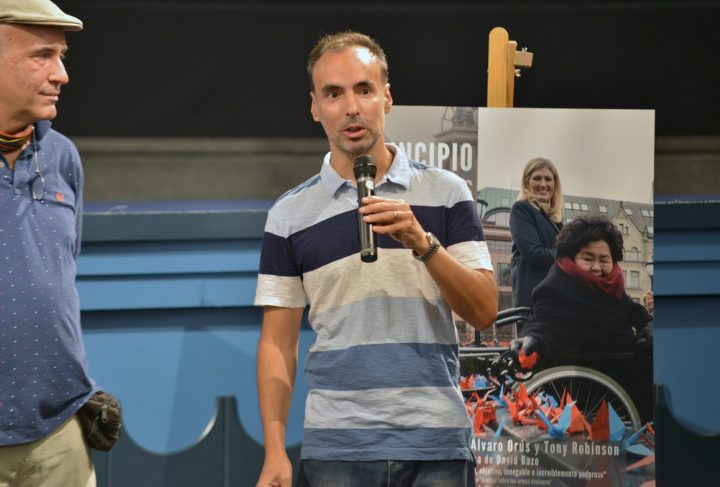
Afterwards, thanks were given to the embassies present, organizations from very different fields and to all the public, who had arrived by different means.
This presentation was followed by the screening of the documentary, whose trailer can be seen here.
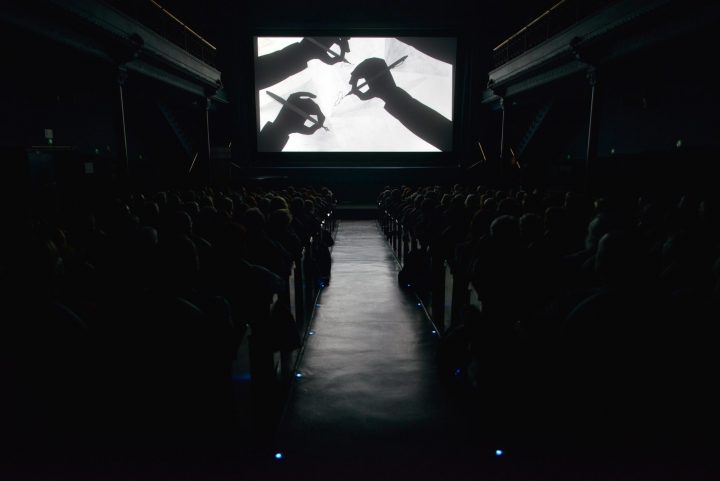
In the second part of the event, Juana Pérez Montero, Pressenza director in Madrid, coordinated a talk on “How to build a citizen movement to eliminate nuclear weapons”, following the call to action that the documentary ends with.
During the talk, reference was made to the silence that surrounds the subject despite the danger in which we live and the need to break it. Different proposals for achieving this were seen, among others that institutions, political parties and social organizations commit themselves. But also that big movements today such as the feminist movement or the movement for the climate, so closely related to wars and nuclear weapons, in particular, do the same.
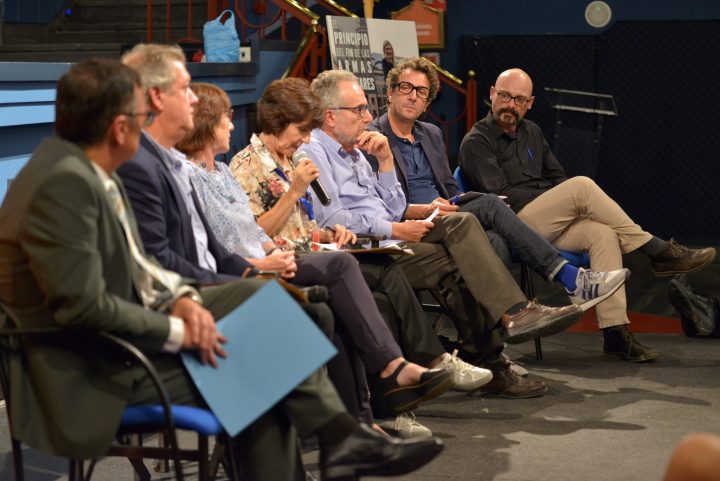
Ubaldo Garcia: “Costa Rica declared peace to the world by abolishing the army.”
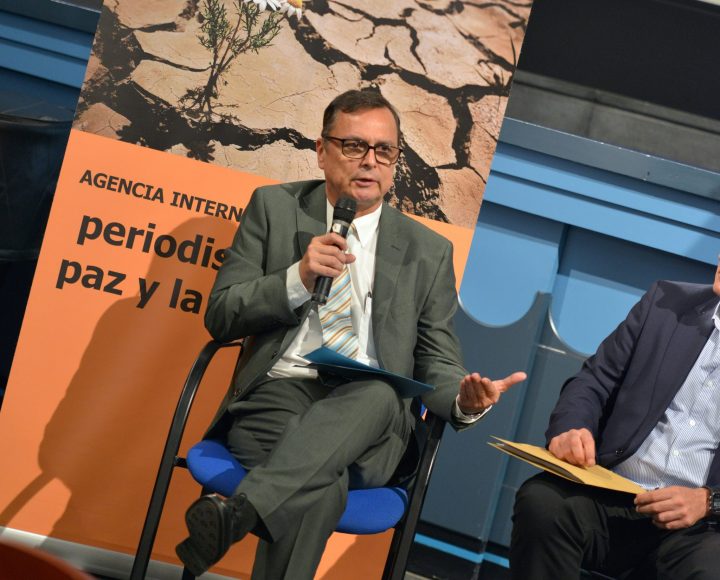
In the talk, Ubaldo García Ruiz, attaché at the Costa Rican Embassy in Madrid, began by answering the question about his country’s role as an example of peace and in the process that led to the Treaty on the Prohibition of Nuclear Weapons. García Ruiz said, “Our country declared peace to the world seventy years ago by abolishing the army. Not only because of our anti-war policy but also because we are sure that by allocating the money – which other countries use to manufacture weapons – to accelerate international cooperation between countries, we are almost certain that a large part of the world’s poverty and hunger could be eradicated. So promoting these kinds of issues [Like the TPNW] is in our DNA.”
Joaquín López: “Spain has legislated in favour of nuclear disarmament, this is an advantage over other countries”.
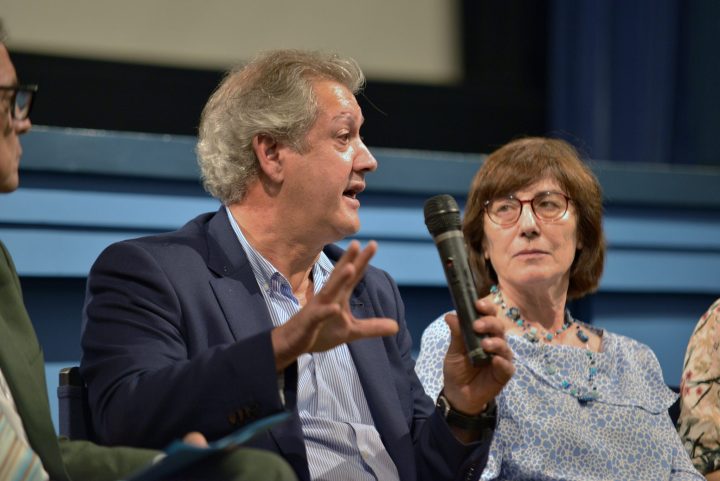
Joaquín López, coordinator of the Centre of Studies on International Humanitarian Law and Human Rights of the Spanish Red Cross, when asked if there are any legal impediments to prevent Spain from signing the Treaty, replied that the advantages for Spain are that already in 2014 two non-legislative proposals were presented by the large political parties that were approved, in which “the Government was urged to support any international initiative aimed at banning nuclear weapons”. Later, in 2015, the Penal Code was modified, establishing criminal sanctions for the use of nuclear weapons, “anticipating” in some way the Treaty, López explained.
Carmen Magallón: “Just like the atomic bomb needs a critical mass, today we need to have a critical will… to stop this madness.”
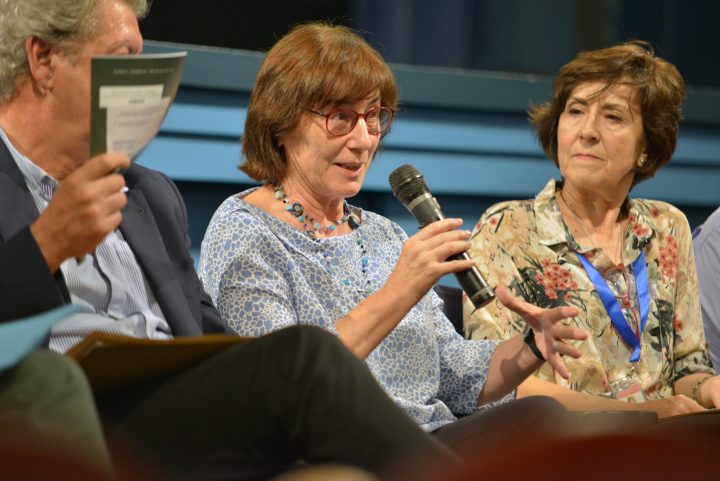
Carmen Magallón, president of the Women’s International League for Peace and Freedom Spain, explained the project they are developing in their organization called Reaching Critical Will as a metaphor: “Just like the atomic bomb needs a critical mass, we now need to have a critical will; get people to take the issue back into their hands and, as in the 1980s, stop the madness.”
Regarding the importance of the role of women in the struggle for nuclear disarmament and how the current feminist movement can contribute to defend this issue, Magallón explained that “we have been educated to care and we consider that care is important and nuclear weapons destroy it, but we don’t want to be just women, we want to universalize care,” and later added that it will be very important for the feminist movement worldwide to include this struggle as well.
Pedro Arrojo: “Spain has not signed the TPNW due to a clear lack of political will”.
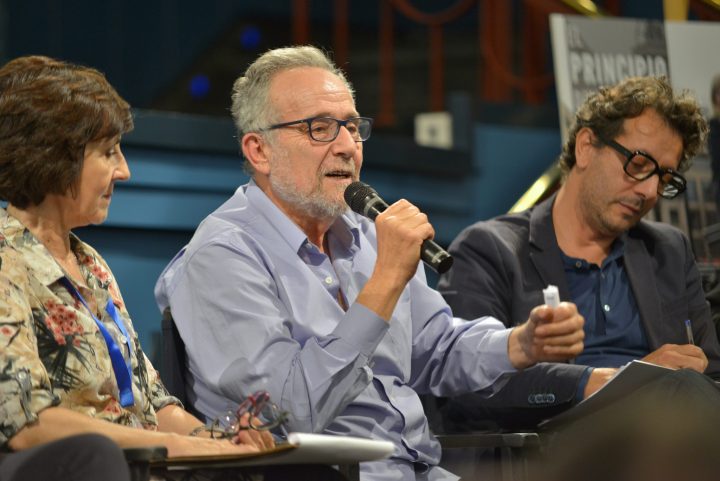
Pedro Arrojo, environmental and nonviolence activist and former Podemos deputy, was responsible for collecting nearly 100 signatures from Spanish parliamentarians in favour of the Treaty. After charting the history of the strong peace movement of the 1980s, when it was “easier” for different reasons, he explained how the Socialist Party and Unidos Podemos had signed a programme agreement in mid-2018, by which the Socialist Party committed itself with UP to sign and ratify the Treaty. Something that Pedro Sánchez’s government has not respected and fulfilled “due to a clear lack of political will,” accepting pressure from the United States and NATO, since “as demonstrated by ICAN reports,” there are no legal reasons to prevent it.
Regarding different campaigns being developed to promote the Treaty on the Prohibition of Nuclear Weapons, in addition to the Parliamentary Pledge, Arrojo himself spoke of Cities Appeal for governments to sign and ratify the TPNW or by participating in the 2nd World March for Peace and Nonviolence which will begin on October 2 in Madrid.
Nuclear weapon divestment campaign
Juana Pérez M. recalled the nuclear weapons disinvestment campaign from the film that is being carried out in different countries (in Spain, through the Banca Armada campaign) and invited those present to demand that the banks and financial institutions they use, those of the institutions they work for and the local Councils they live in, stop invest in nuclear weapons and, if they refuse, to move their money to financial institutions that don’t.
Felipe Llamas: “We remain committed to the Cities Appeal and to the construction of a culture of peace and nonviolence”.
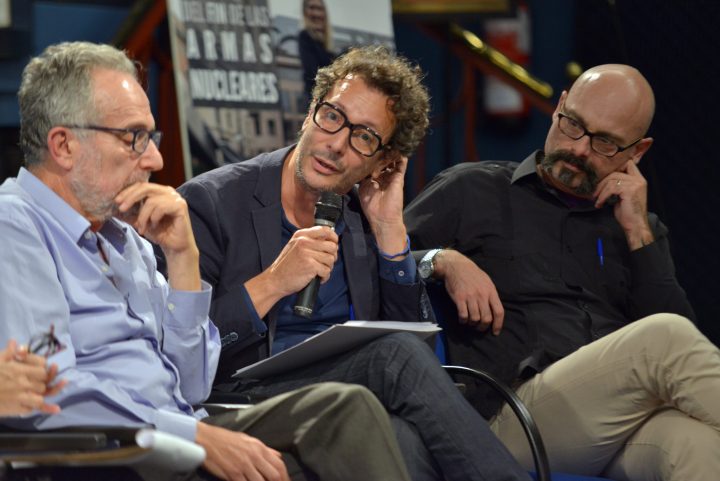
On the position of the Madrid City Council, Felipe Llamas, advisor to Más Madrid in the City Council, who was present in the conversations between ICAN and the then mayor Manuela Carmena, explained how Madrid City Council did not finally endorse the TPNW due to the lack of majority in the Chamber but there was a commitment and there is still a commitment and we will continue working for it.”
Llamas made a proposal: to change the many war monuments in cities for monuments to peace and nonviolence, which remind us every day of the culture to which we aspire. He took the opportunity to recall “the impulse Carmen’s Government gave to add to the construction of this culture of peace and nonviolence from cities, studying urban violence and its possible solutions during the two editions of the Forum on Urban Violence that took place in Madrid and whose next celebration – he announced – will be in Mexico”.
Txema Guijarro: “Today, with figures like Trump, a window of opportunity has opened… because the danger in which we live is very clear”.
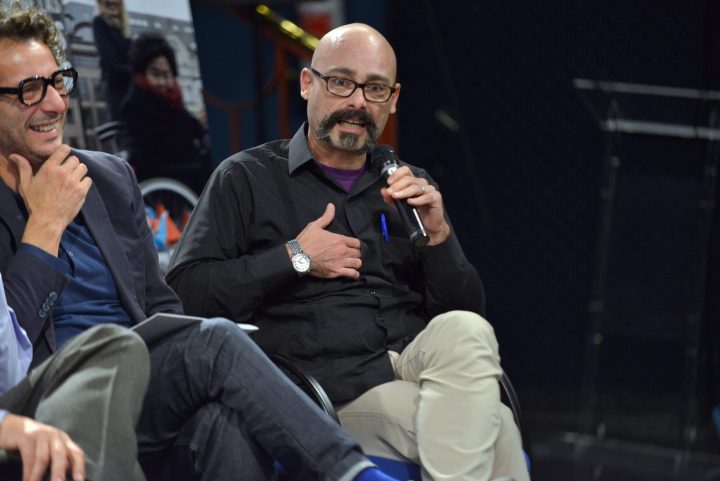
Txema Guijarro, a member of Unidas Podemos and signatory of the Parliamentary Pledge, closed the speeches by responding to the role that could be played by parliaments in advocating the signing of the Treaty and taking the urgency of eliminating nuclear weapons to the streets.
In addition to maintaining the commitment he made last year, he explained that the current crisis both nationally and internationally opens “a window of opportunity. On the one hand we have NATO pressuring countries to double military spending [the case of Spain…] and on the other hand, we have a man like Donald Trump – a guy who is unpredictable – controlling the nuclear buttons. Whoever isn’t alarmed by this situation is out of his mind! When you see a visibly unhinged guy taking us back into this madness, in which the only message is that we’re only safe when we’re armed to the teeth, this is the opposite of common sense.”
The panel ended by asking parties to include support for signing the TPNW into their electoral programme and to argue publicly for it so that the entire population can be informed. Something that was conveyed to all the public figures on the stage and in the room, if they had a clear commitment to the Treaty.
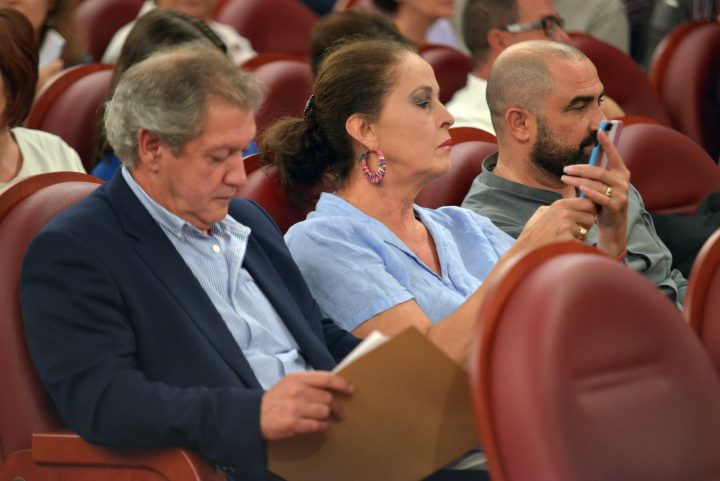
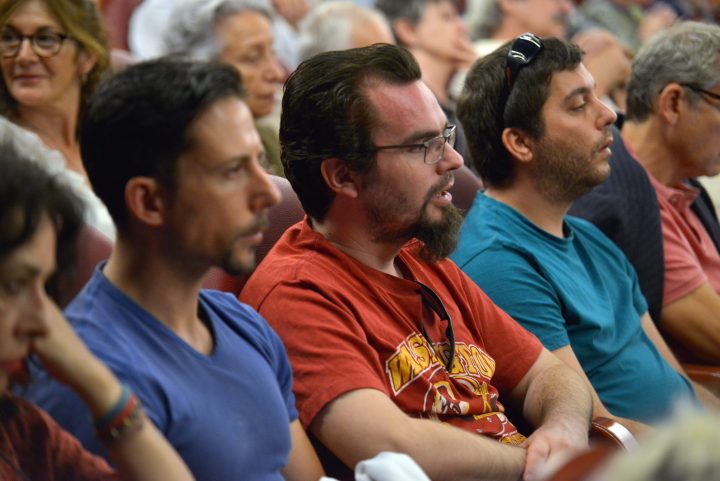
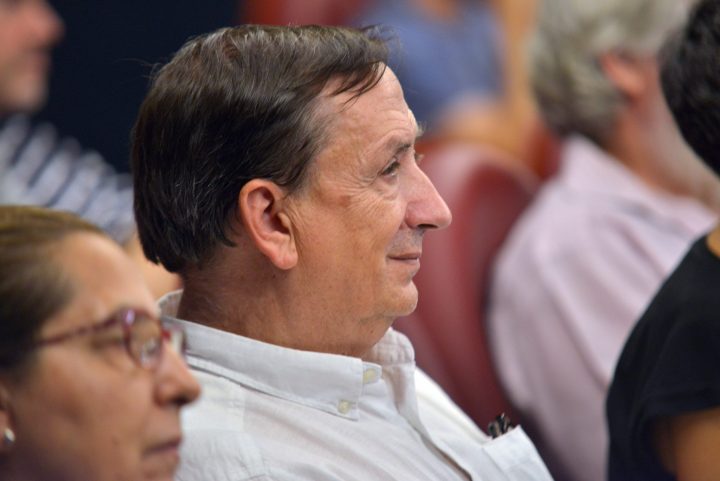
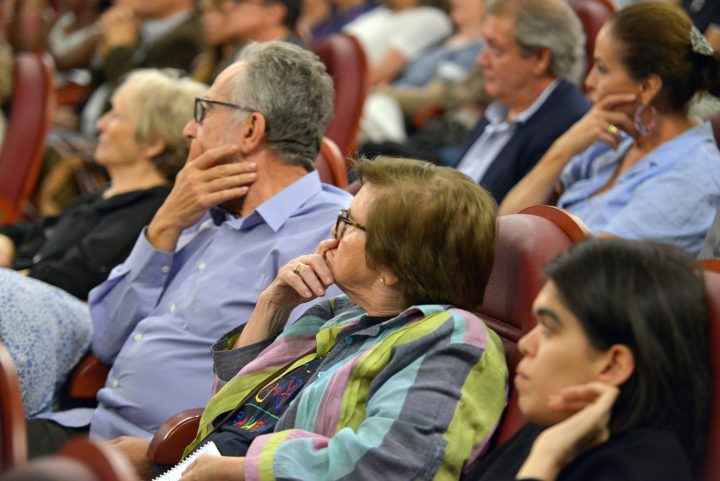
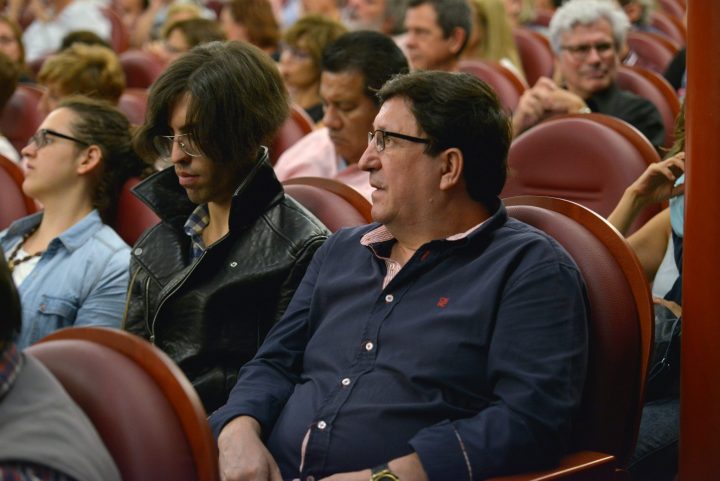
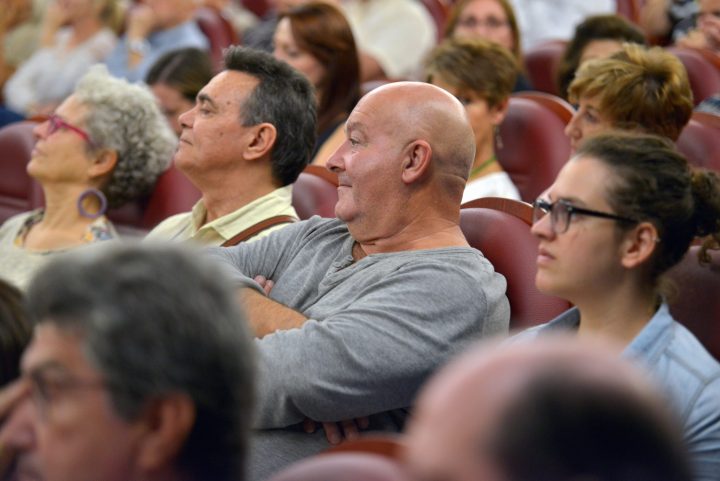
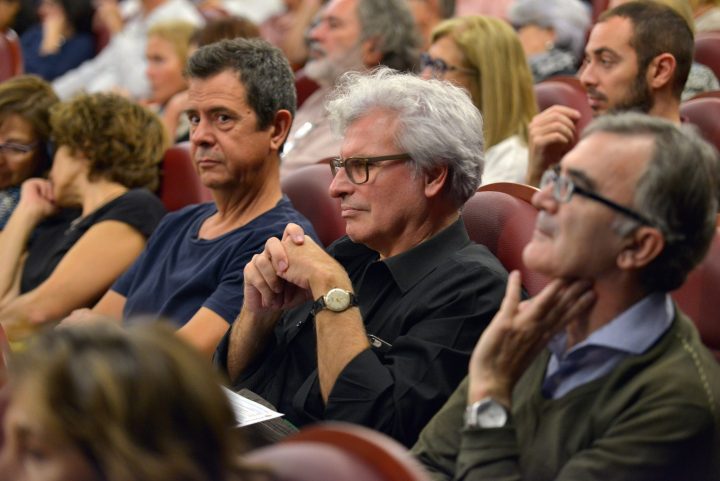
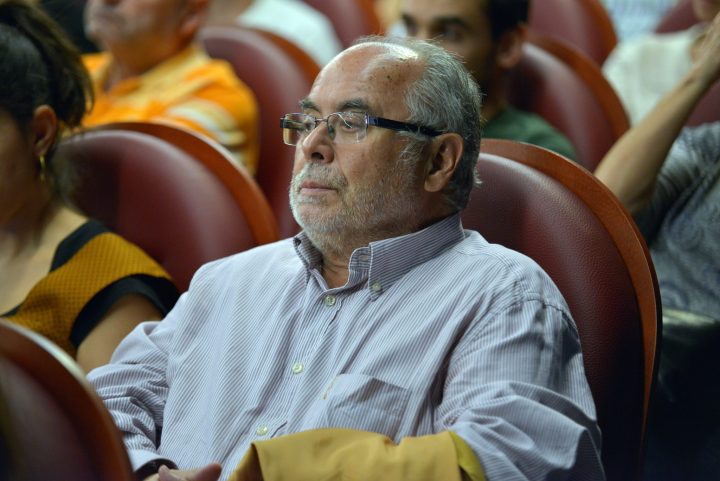
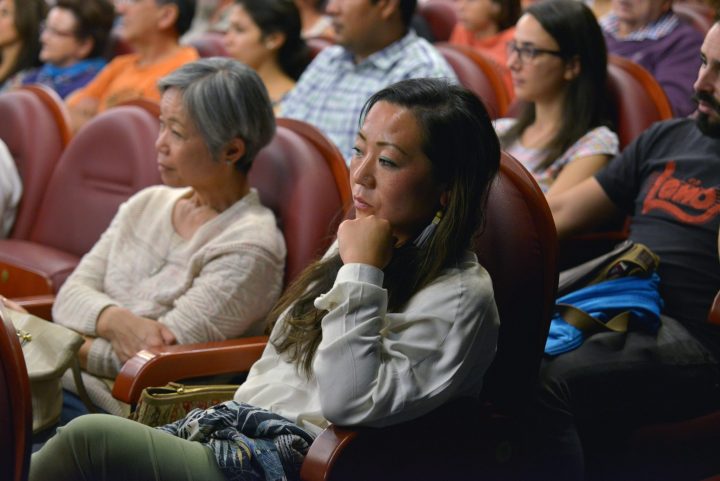
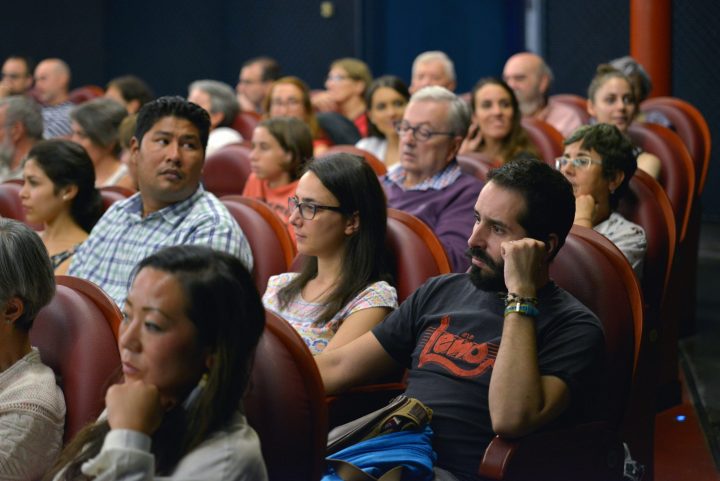
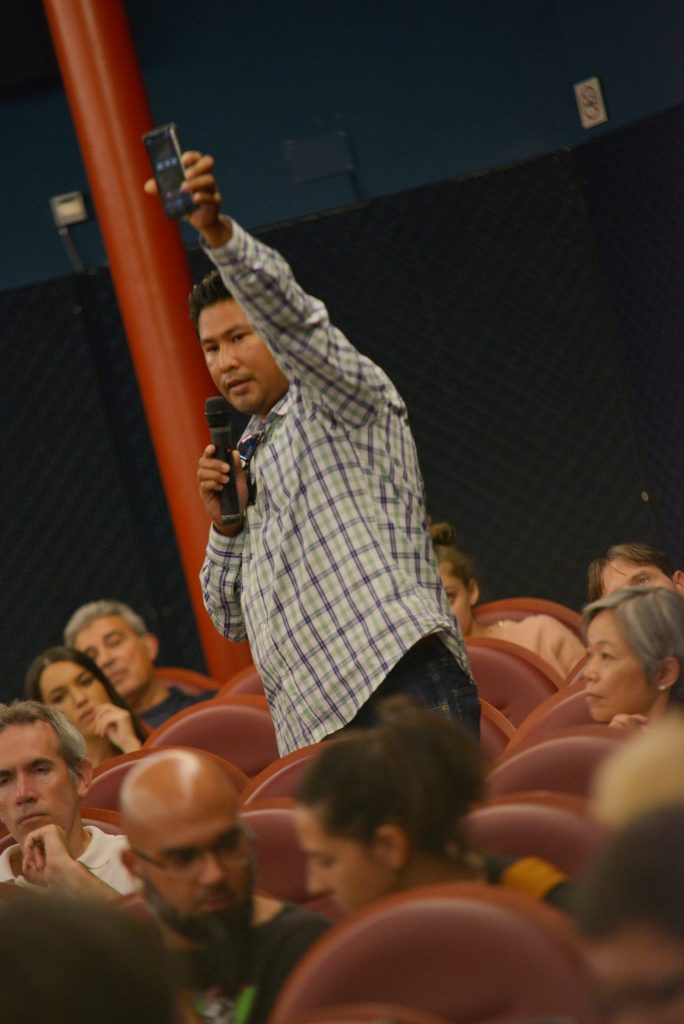

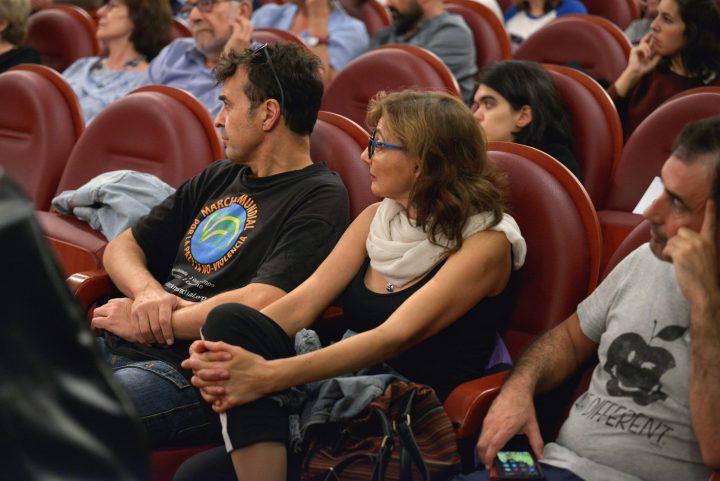
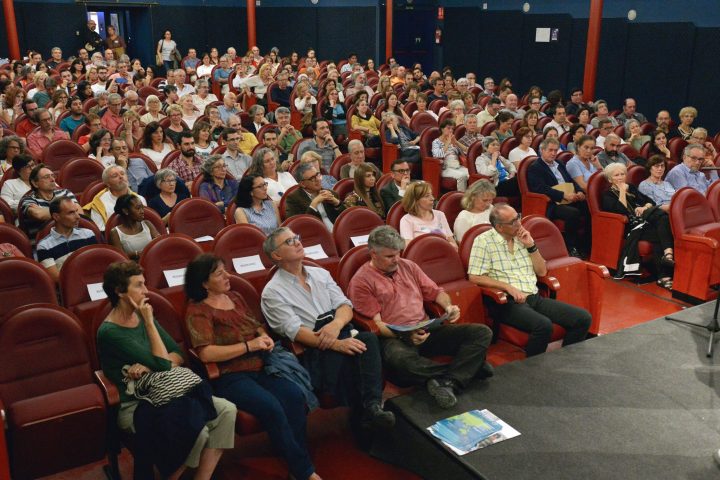
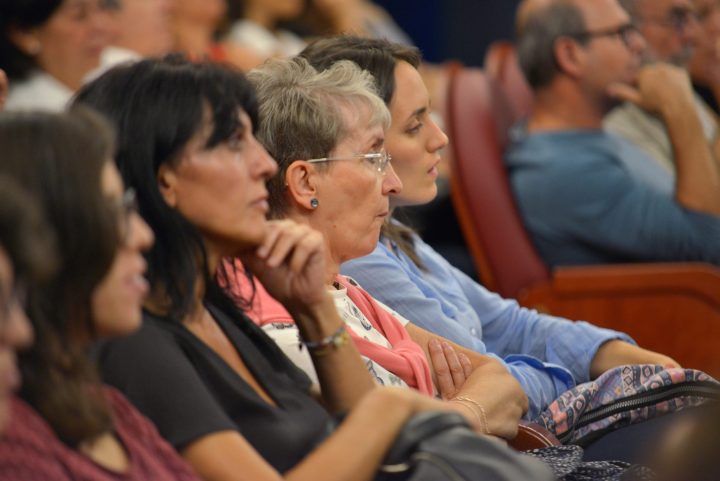
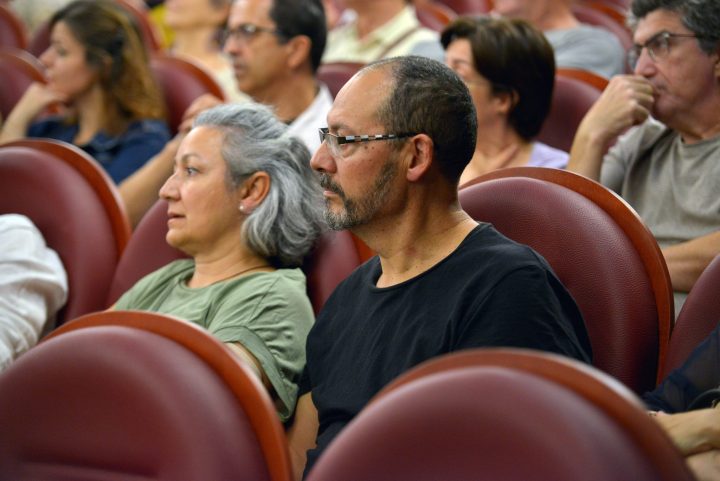
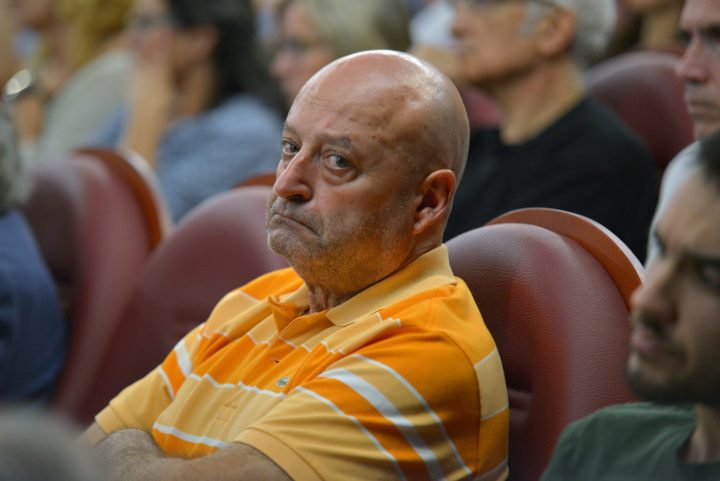
Afterwards, the public was given the floor, where people who had arrived through the press, social networks, organizations as diverse as Soka Gakkai, Amnesty International, Convergence of Cultures, World Centre for Humanist Studies, people from the Baha’i community, FICNOVA, CESIDA, Silo’s Message, World without Wars, Yayo Flautas, Disarm Madrid, Anti-imperialist Internationalist Front, Equo… and figures such as Carla Antonelli from the Socialist Party, actors, scientists, etc…
The event ended with a clear image of the urgent need to mobilise for nuclear disarmament.


